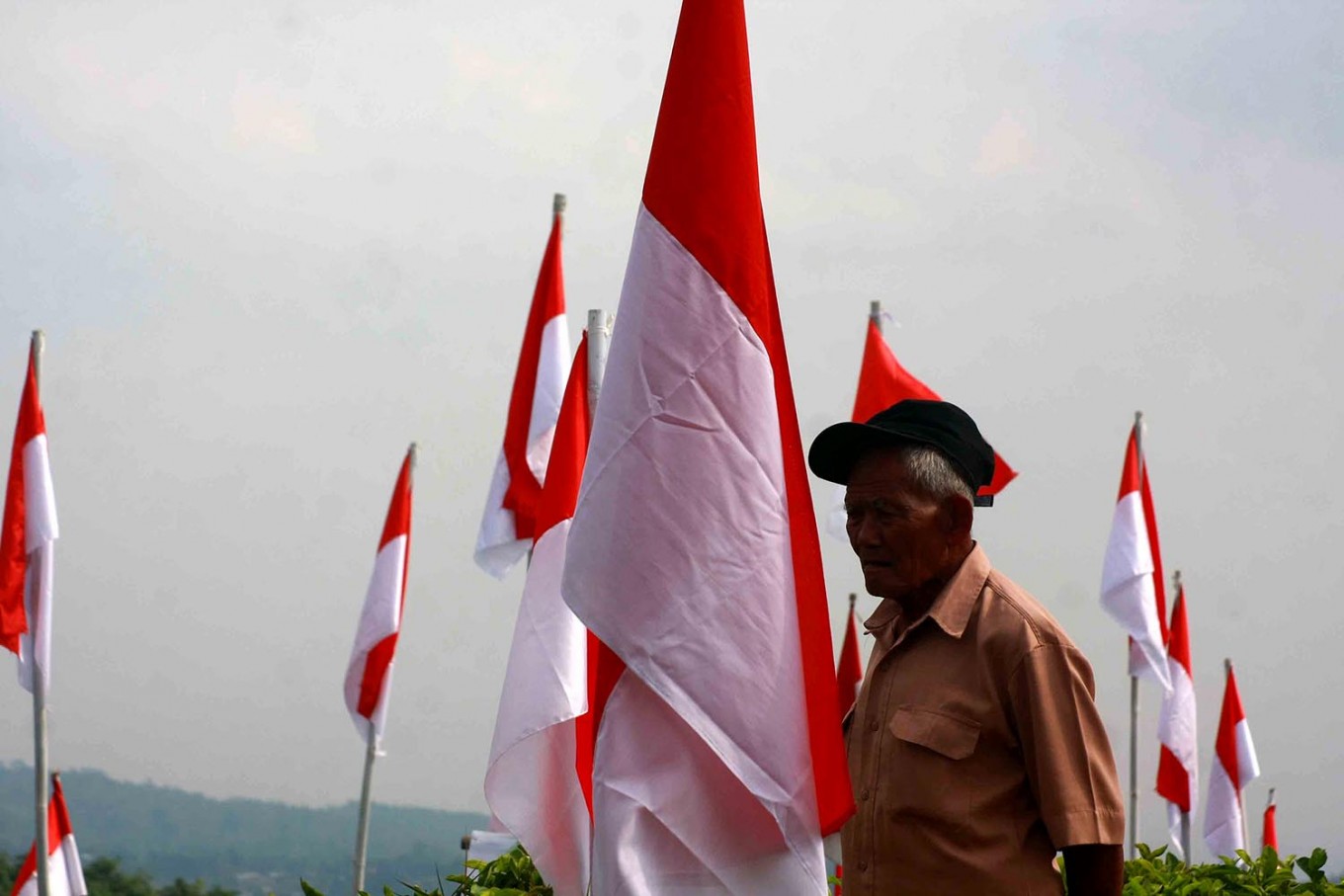Popular Reads
Top Results
Can't find what you're looking for?
View all search resultsPopular Reads
Top Results
Can't find what you're looking for?
View all search resultsDutch PM recognizes 1945 as Indonesiaʼs independence
“We fully acknowledge the 17th of August without reservations. [...] We see the [1945] proclamation as a historical fact,” said Rutte, as quoted by several Dutch media.
Change text size
Gift Premium Articles
to Anyone
T
he Netherlands has finally recognized Aug. 17, 1945 as Indonesia’s official independence day, though still insisting that the legal transfer of sovereignty took place some four years later on Dec. 27, 1949, and that the recognition will not change any preexisting legal conditions.
In a parliamentary meeting on Wednesday in The Hague, Dutch Prime Minister Mark Rutte said that Amsterdam has “completely and unconditionally” acknowledged 1945 as the year marking Jakarta’s independence, the first admission of its kind after 78 years, adding that he would soon consult with President Joko “Jokowi” Widodo to mull on a shared understanding on the past event.
“We fully acknowledge the 17th of August without reservations. [...] We see the [1945] proclamation as a historical fact,” said Rutte, as quoted by several Dutch media.
Rutte’s recognition came as the latest development in the Netherlands’ continued attempt to grapple with its colonialist history, an endeavor that resulted in an independent investigation published early last year on the decolonization of Indonesia for the period of 1945 to 1950. Shortly after the investigation, Rutte offered Jakarta an apology for the “extreme violence” of mass detentions, torture and executions carried out by the Dutch military within the studied period.
On Wednesday, the Dutch parliament came together to debate the investigation’s results, with most of its members supporting it and some going as far as suggesting the return of the 4.5 billion guilders Indonesia paid to the Dutch government in the 1950s, which in today’s currency would amount to 25 billion guilders (US$13.9 billion).
At the 1949 Hague Agreement, the Netherlands sought from Indonesia 6.5 billion guilders in debt settlement for their losses during the four-year war, which was finally settled to 4.5 billion and paid in batches since the mid-1950s.
Yet, seemingly dismissing some of the parliamentarians’ more progressive suggestions, Rutte insisted that his statement would not "change any existing legal grounds." After his statement, one of his spokespersons told Dutch media that the Netherlands would still take 1949 as the year marking the official transfer of sovereignty “after a bloody war,” and that they could not “reverse that [fact].”
Yet some Dutch parliamentarians were also reported to have argued that recognition must have legal consequences, including the removal of the term “Dutch East Indies” from all books and legal recognition of war crimes.
Independent?
That the Netherlands has acknowledged 1945 as marking Indonesia’s independence yet still insisting that sovereignty was only transferred in 1949, meant that Indonesia, throughout the four years in between, was independent but not sovereign, experts told The Jakarta Post, saying that this premise has “no logical basis.”
An independent country is one with sovereignty, experts said, suggesting that Rutte’s statement could be interpreted as an attempt to avoid the legal consequences that will inevitably come with stating 1945 as the start of Indonesia’s sovereignty.
“If Rutte had admitted that Indonesia was sovereign in 1945, this means that the actions of the Dutch military from 1945 to 1950 can legally be interpreted as an act of aggression, an occupation," said Hadi Rahmat Purnama, an international law expert specializing in colonization at the University of Indonesia.
And this would give them a lot of homework to do, he said, such as a thorough investigation of the Dutch military activities between 1945 to 1949 as acts of war crime, a reparation for the damages inflicted, as well as the return of the 25 billion guilders. All of these, Hadi suggested, would be “financially draining” for the Dutch economy.
At the Wednesday parliamentary debate, Dutch media reported that there were widespread concerns over some parties over a possible investigation of Dutch military activities from 1945 to 1949, with Rutte saying that it was only possible to discuss war crimes only after 1949.
“We continue to disagree, I’m afraid,” Rutte said, as quoted by ad.nl news outlet.
But without any legal consequences, Hadi said, Rutte’s statements have yet to earn any significance beyond a mere public relations stunt.
“We ought to see this more comprehensively. Without any consequences, these acknowledgments are simply lip service. It carries no effects or claims of responsibility,” he said, adding that it would be more meaningful for the statement to have come from the Dutch monarchy.
The Dutch embassy in Jakarta was not immediately available for comment.










